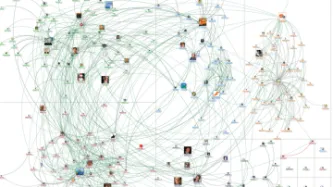Search
Content type: Video
Links
The Enablers by the Bureau of Investigative Journalism
PI's report
Submit your podcast questions
Sign up to our mailing list
Places to listen
You can listen and subscribe to the podcast where ever you normally find your podcasts:
Spotify | Apple podcasts | Castbox | Google podcasts | Overcast | Stitcher | Pocket Casts | Peertube | Youtube | Soundcloud | Podbean | Podcast Republic | Breaker | Podcast Addict | Deezer | and more...
Content type: News & Analysis
As Amnesty International and Forbidden Stories continue to publish crucial information about the potential targets of NSO Group’s spyware, we know this much already: something needs to be done.
But what exactly needs to be done is less obvious. Even though this is not the first time that the world has learned about major abuses by the surveillance industry (indeed, it’s not even the first time this month), it’s difficult to know what needs to change.
So how can the proliferation and use of…
Content type: Explainer
An array of digital technologies are being deployed in the context of border enforcement. Satellite and aerial surveillance are part of the surveillance toolkit and yet, they are also used by organisations seeking to hold government actions to account and improve efficacy of their own work. To effectively critique state use and delve into potential benefits of satellite and aerial surveillance, we must first understand it.
In this explainer we dig into a technology which many are aware of for…
Content type: Video
**Language advisory: Gus does several swearwords this episode including one f-word at 9:45
From surveillance drones to cameras to wiretapping and more - the EU are providing technologies that will be used to crush political and civil freedoms and undermine democracy without urgent reforms
Find out more:
https://privacyinternational.org/long-read/4288/borders-without-borders-how-eu-exporting-surveillance-bid-outsource-its-border
https://privacyinternational.org/…
Content type: Long Read
There are few places in the world where an individual is as vulnerable as at the border of a foreign country.As migration continues to be high on the social and political agenda, Western countries are increasingly adopting an approach that criminalises people at the border. Asylum seekers are often targeted with intrusive surveillance technologies and afforded only limited rights (including in relation to data protection), often having the effect of being treated as “guilty until proven…
Content type: News & Analysis
Privacy International has joined a global coalition of privacy campaigners, tech companies, and technology experts to respond to proposals by British intelligence chiefs aimed at allowing them access to encrypted messaging apps such as WhatsApp or Signal.
If implemented, the proposals would allow government authorities to force messaging platforms to silently add a law enforcement participant to a group chat or call.
Such a capability poses serious threats to…
Content type: Impact Case Study
What HappenedOn 5 June 2013, The Guardian published the first in a series of documents disclosed by Edward Snowden, a whistleblower who had worked with the NSA. The documents revealed wide-ranging mass surveillance programs conducted by the USA’s National Security Agency (NSA) and the UK’s Government Communications Headquarters (GCHQ), which capture the communications and data of hundreds of millions of people around the world. In addition to revealing the mass surveillance programs of the NSA…
Content type: News & Analysis
17 June 2013
Below is an excerpt of an article that recently appeared in Melbourne, Australia's The Age, written by Carly Nyst, Head of International Advocacy at Privacy International:
"Mass surveillance of a country's citizens by its government can no longer be said to be the preserve of authoritarian and dictatorial states.
The publication last week by The Guardian of classified National Security Agency documents has exposed the extent of surveillance by the US government, throwing…
Content type: Press release
The government today published a draft version of a bill that, if signed into law in its current form, would force Internet Service Providers (ISPs) and mobile phone network providers in Britain to install 'black boxes' in order to collect and store information on everyone's internet and phone activity, and give the police the ability to self-authorise access to this information. However, the Home Office failed to explain whether or not companies like Facebook, Google and Twitter will be…
Content type: News & Analysis
For the past 18 months, I've been investigating the export of surveillance technologies from Western countries to despotic regimes, but I never thought I'd see a democratic government proposing to install the kind of mass surveillance system favoured by Al-Assad, Mubarak and Gaddafi. Yet the Home Office's latest plans would allow the authorities unprecedented levels of access to the entire population's phone records, emails, browsing history and activity on social networking sites,…








